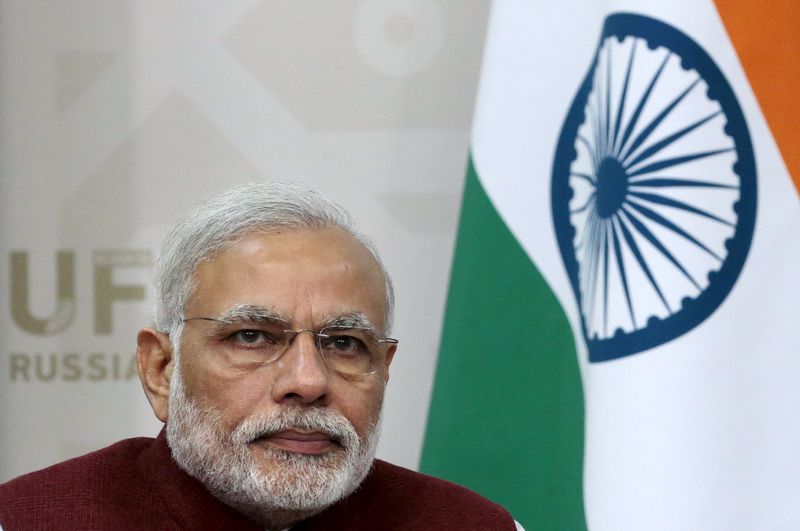* Clears three varieties of khesari lentil banned in 1961
* New varieties safe in reasonable quantities -state scientist
* Local shortage forces India to import from Canada, Australia
By Krishna N. Das
NEW DELHI, Jan 19 (Reuters) - India is lifting a five-decade-old ban on a type of lentil that has been linked to nerve damage and paralysis, in a desperate attempt by Prime Minister Narendra Modi to cut legume imports and make the nation self sufficient in the edible seeds.
Hit by back-to-back droughts for the first time in over three decades, India's lentil output has fallen and prices have nearly doubled. Now the government has cleared three varieties of the khesari lentil, which can grow in dry or wet conditions.
But the opposition Congress party, which is trying to pressure Modi over continuing rural hardship, said the government was playing with the health of unsuspecting Indians by allowing the cultivation of khesari.
The varieties developed by Indian scientists, however, contain a lesser amount of a neurotoxin that can damage nerve tissues and weaken the legs of both humans and animals than previous varieties, said Narendra Pratap Singh, director of the state-run Indian Institute of Pulses Research (IIPR).
"The government thought if in a reasonable quantity it can be consumed then why not allow it, particularly when there's a crisis and we're importing pulses," said Singh.
Despite the ban placed on the lentil in 1961, khesari is still eaten in eastern India and neighbouring Bangladesh, mainly as a cheap source of protein for millions of poor people.
"This is how the Modi government is tackling price rise - by lifting (the) ban on a pulse that's medically proven to cause paralysis," Congress party spokesman RPN Singh said on Twitter (N:TWTR).
The three varieties now allowed have been ready for the last 10 years and "various experiments on animals have shown there are no adverse long-term effects if consumption is in reasonable quantity," IIPR's Singh said.
Every year Indians consume about 22 million tonnes of lentils used to make a thick stew called dal, commonly taken with rice or flat bread across South Asia. About a fifth of the volume is imported from countries like Canada, Australia and Myanmar, which grow the legumes mainly to sell to India.
Modi wants India to be self sufficient in lentils and last month approved a scheme to encourage greater cultivation of the legumes. Higher incentives for water-intensive crops like wheat and rice have made India a big grains producer at the cost of other key crops like lentils and oilseeds.
